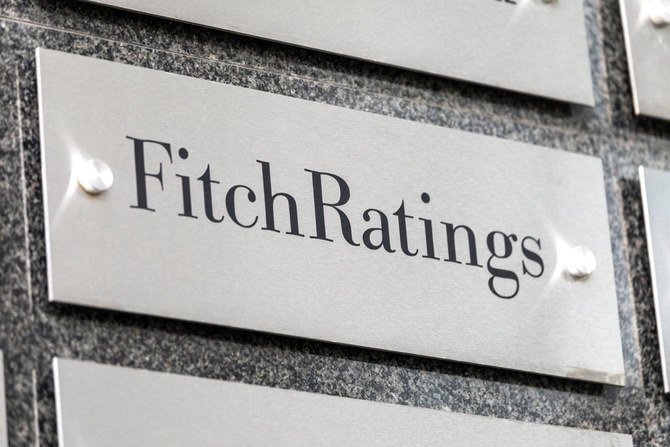RIYADH: China’s long-term foreign currency issuer default rating has been revised to negative from stable by Fitch Ratings, citing increased uncertainty regarding its economic growth.
In its latest commentary, the US-based credit rating agency noted that the outlook revision also reflects increasing risks to China’s public finance outlook as the country contends with more uncertain economic prospects.
Fitch’s change to its outlook for Beijing is in contrast to its assement of other global economic powerhouses, as in March it affirmed the long-term foreign-currency issuer default rating of the US at “AA+” with a stable outlook.
In the same month, Fitch also revised the UK’s credit outlook from negative to stable and affirmed the issuer default rating at “AA-.”
Explanining the shift in its view on China, the Fitch report stated: “Wide fiscal deficits and rising government debt in recent years have eroded fiscal buffers from a ratings perspective.”
It added: “Fitch believes that fiscal policy is increasingly likely to play an important role in supporting growth in the coming years, which could keep debt on a steady upward trend.”
The report went on to say that contingent liability risks may also be rising, “as lower nominal growth exacerbates challenges to managing high economy-wide leverage.”
Despite receiving a negative outlook, Fitch affirmed China’s actual issuer default rating at “A” considering its large and diversified economy.
“China’s ‘A+’ rating is supported by its large and diversified economy, still solid GDP (gross domestic product) growth prospects relative to peers, integral role in global goods trade, robust external finances, and reserve currency status of the yuan,” Fitch added.
According to the report, China’s general government deficit would rise to 7.1 percent of GDP in 2024 from 5.8 percent in 2023, marking the highest level since a reading of 8.6 percent in 2020.
The commentary also added that China’s GDP growth is expected to moderate to 4.5 percent in 2024, down from 5.2 percent in 2023. This shift is driven by persistent weakness in the property sector and subdued household consumption.
Meanwhile, China’s Finance Ministry said that Fitch failed to recognize the anticipatory and long-term benefits of the country’s fiscal policy adjustments.
“We are disappointed with Fitch’s decision to downgrade the outlook of China’s sovereign credit rating. We had a lot of in-depth communication with Fitch’s rating team in the early stages, and the report partly reflected the views of the Chinese side,” said the ministry in a statement.
It added: “In the long run, our fiscal policy will help maintain good sovereign credit by keeping deficit at an appropriate size, utilizing proceeds from debt issuance to expand domestic demand, and supporting economic growth.”
Source: Arab News



